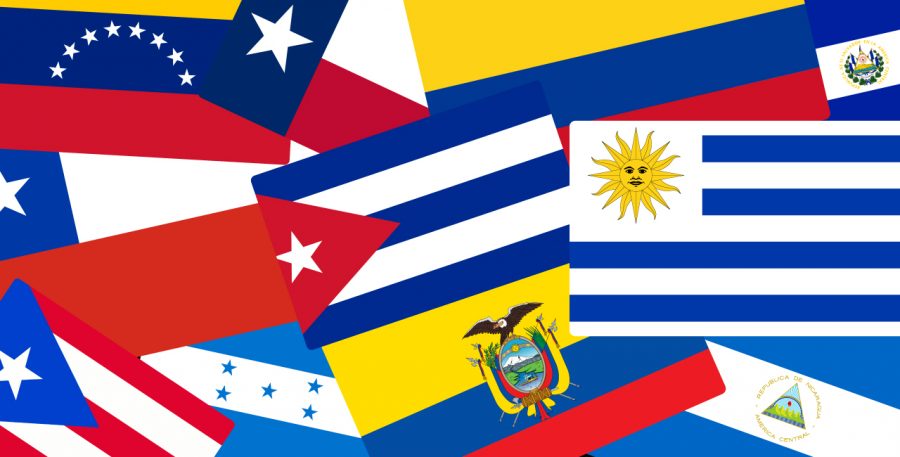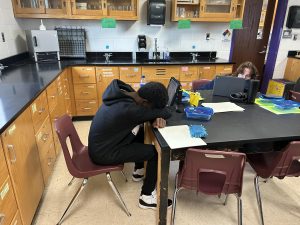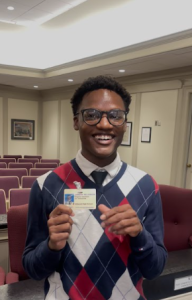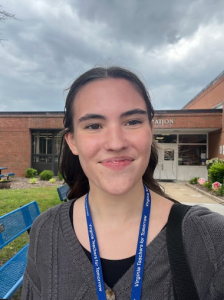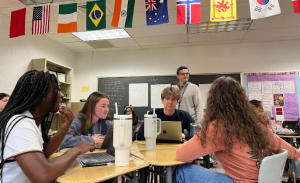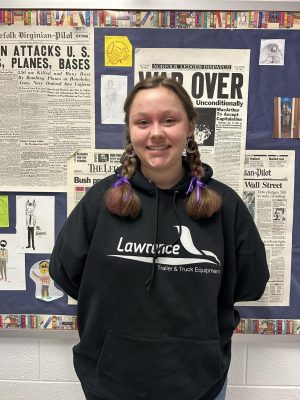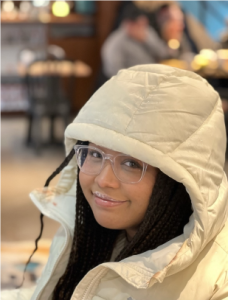Identity Struggles During Hispanic Heritage Month
October 3, 2018
For some people, Hispanic Heritage Month is a time to remember the contributions of brave Hispanic men and women. For others it’s merely a month like any other in the year. I used to be like the latter, only really appreciating it for the taquitos and quesadillas that it brought for lunch during the month. However, now that my fated 15th birthday, my quinceañera, is fast approaching, I can’t help but reflect on what this month really means to me.
My parents are both Cuban immigrants, my dad from the famous city of Havana and my mom from a smaller neighborhood in Holguín. Me and my sister are in our family’s first generation of natural born citizens. This has put me in a position where I’m objectively closest to my roots, yet I’ve continuously rejected them for so long. It started when I entered pre-k and noticed that all the kids around me spoke English and that maybe I didn’t need to speak Spanish at all. It was my first language but I could forget it because, well, why did I need it? I distinctly remember telling my mom one day that “I don’t need to speak Spanish, I’m American!” Until then, I had never regretted speaking a sentence as much as that.
From then on, I never spoke Spanish. My mom and dad pretty much gave up trying to use it with me once I reached the age of 5, as I was old enough to refuse it. Although I can’t blame myself for being young and naive, that was a poor decision on my part. My mom would take me to Cuba every few years when she went to visit family, the earliest memory I have of which was in the first grade. The entire trip I complained about the heat, the lack of a shower head in my grandma’s house, and the limited channels available on TV. Most of all, though, I found myself complaining about the language barrier. At the young age of about 6 or 7, I had the audacity to dismiss the language my entire family spoke and then get upset when I couldn’t talk to my cousins without my mom translating for me.
That was only the beginning of a long decade of me moving further and further away from my identity. When my mom tried to teach me to dance, I said I didn’t want to. When my parents would make me Cuban food, I would say I hated it. While my mom watched her telenovelas, I started getting into anime and manga and soon enough I was more knowledgeable in Japanese than I was in Spanish.
This whole time, I never saw my heritage as anything special. I never thought it was interesting or worth learning about until I was about halfway through middle school and had begun making more Hispanic friends. I grew up in neighborhoods dominated by primarily non-Hispanic people and I barely had Hispanic acquaintances.
In middle school, though, I formed real connections with my peers, many of whom were Hispanic, and I started to realize the difference between us: that I had let go of my culture while they had embraced it. I always dreaded going back to Cuba, but my friends always missed visiting family. I could barely speak a word of Spanish, but they could talk to relatives in Venezuela or Mexico with no issues. I always begged for fast food for dinner and they looked forward to their home-cooked meals. I wasn’t like them and, for the first time, I felt bad about it. I saw how nice it can be to have such a strong tie to where you came from and it hurt to know that I didn’t have that.
This Hispanic Heritage Month, I want to share one message with you all: Stay connected with your background. You may want to fit in with those around you or pursue an interest in a foreign country, but you should always stick to your roots. When I was young and I didn’t know any better, I let go of this crucial part of me and I’m constantly reminded of that mistake. Meeting fellow Hispanic people reminds me how much I don’t know about my own culture and my own family. Even the thought of having to take Spanish 1 as a junior next year brings me so much shame. Still, I’d like to believe that it’s not too late to reclaim my heritage as a Latina.
If you’ve made the same mistakes as me, I want to tell you (and maybe even myself) that it’s not too late to get back in touch with your heritage. It never will be too late. Wanting to delve deeper into your family and your culture is the best first step you can take. The smallest things, like listening to music from your country, listening to stories about your family, making an attempt to learn your culture’s language, are enough. You don’t have to travel or know everything about your country or even be fluent in the language. The least you could do is make an effort to become reconnected with the ones closest to you. I encourage you, if you’re anything like me, to think about where you come from and what that means to you. I know I will.
Click here to access other articles in Volume 4, Issue 1 of The Roaring Gazette.

